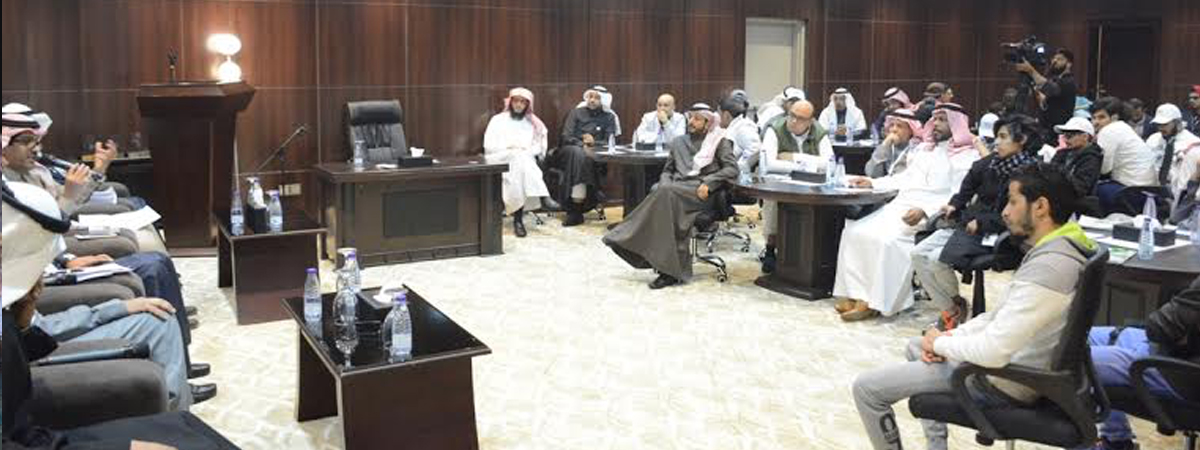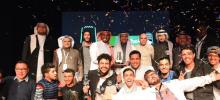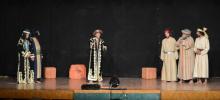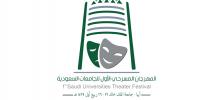Concerns and Aspirations of University Theatre

The activities of the First Theater Festival of Saudi Universities hosted by King Khalid University in Abha launched yesterday afternoon. The first event was a symposium entitled "University Theater: Concerns and Aspirations," moderated by the Director of the Association of Culture and Arts in Abha, Ahmad Al-Sarawi, with the participation of faculty members from Qasim University, Dr. Ahmed Al-Tami, from King Saud University, Dr. Nayef Khalaf, from Jazan University, Dr. Mohammed Habibi, and Theater Director, Abdullah Bahatab.
Al-Tami began by elaborating on the visionary leadership in University Theater provided by King Saud University in Qasim (which later turned to Qasim University). He pointed out that the idea of the first local theater festival started from the Qasim branch. The first steps taken by the Student Affairs Deanship in Qasim University was to attract qualified theatre directors and gifted students. It then moved on to look for proper theatrical scripts for well-known playwrights. Moreover, Qasim University encouraged both students and stakeholders alike to engage in playwriting. Mr. Al-Tami explained that the idea was prepared and developed by nine theater groups from the Culture and Arts Associations in several regions in the Kingdom, and subsequently, turned into a national festival under the auspices of the Ministry of Culture and Information.
Dr. Naif Khalaf spoke about his experience at King Saud University since he was a student. He said, "I passed through three stages: fear of trying, love of theater, and the abandonment stage. Each stage had its circumstances”. He added, “I was encouraged by the existence of a constellation of acclaimed Arab playwrights who were working in the university. Also, the university boasts a huge library, which contains important literary-theatrical references.” After that, Mr. Al-Tami reviewed his experience in directing, indicating that the most important way is to work closely with students and discovering the hidden strengths of their talents.
Dr. Mohammed Habibi started his segment by commenting on the conditions of theater in Jazan since the establishment of Jazan University. He related that the theater movement was stuck in the early stages of planning when the Deanship of Student Affairs in Jazan University started its mission to train students on the foundations of theater, giving them ample opportunities to participate in numerous activities around the Kingdom. Dr. Habibi fondly recalled an experience he described as very important; the establishment of a theater group of disabled students who participated in the theater festival that was held in Poland where they performed phenomenally.
Habibi concluded his participation in the symposium emphasizing, "Nothing brings more honor and pleasure to an innovative student and his teacher except when they raise the flag of their country in foreign festivals."
For his part, Theatrical Director Abdullah Bahatab talked about his experience for more than 20 years in the Theater of King Abdulaziz University. He summarized his experiences over several points. He mentioned the intricate details of the close cooperation that occurred with a number of playwrights. He said they collaborated with him in over 37 performances submitted by the University. What's more, the cooperation extended to 22 directors who belonged to different schools in theatrical directing. Dr. Bahatab added that King Abdulaziz University was the first to participate in a tourism festival that was held in Abha in 1408. He concluded by stressing that the university has performed more than 90 plays.
At the end of the symposium, the moderator opened the area for suggestions. They agreed to the following:
- The importance of holding the festival on a permanent rotational basis.
- Forming a follow-up committee representing all universities.
- Demanding a clear strategy for theatrical activity at the level of Saudi universities rather than depending on persons who may leave their positions affecting theatrical work.








